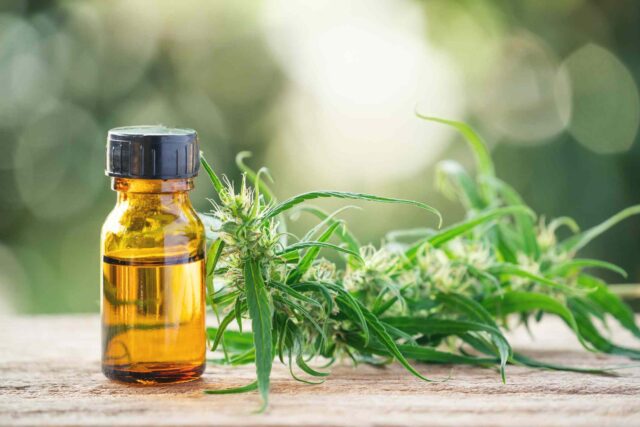Information about cannabis seeds: the nutritional benefits of cannabis seeds
In 1972, Mick Jagger and Keith Richards thanked ‘Sunny California’ for its wines and sweet and bitter fruits. Fifty years later, ‘Sweet Virginia’ remains one of the Rolling Stones’ most iconic songs. And California is much more than its fruits. It is an icon of the bioeconomy.
Cannabis seeds – such as the tremendous and high-quality feminized seeds that you can legally order online, which are produced from the Cannabis Sativa plant, offer incredible nutritional benefits.
Often called “marijuana”, the plant is best known for its psychoactive uses or cannabidiol (CBD), a popular non-psychotropic supplement used therapeutically and medicinally for its antioxidant and anxiolytic effects.
The cannabis seed offers a naturally balanced 1:3 ratio of Omega-3 and Omega-6 Essential Fatty Acids (EFAs). EFAs are responsible for strengthening the immune system. It contains the 8 amino acids that the human body cannot produce and the 2 that the body is not capable of generating in sufficient quantity.
Cannabis seeds are full of exciting components!
65% of the protein in cannabis seeds is edestin, a protein that helps the immune system function properly. 35% of the protein is albumin, which quickly assimilates the protein into the body. Cannabis offers an excellent alternative protein when you are allergic to dairy.
Studies suggest that cannabis seed and its oil can help break down cholesterol and fight blood clots, usually caused by high cholesterol levels.
They highlight the nutritional benefits of cannabis seed
Clinical trials have shown that the Omega-3 and Omega-6 found in hemp oil prevent dry skin and are beneficial in treating conditions such as eczema and psoriasis.
While eating healthy can be great for your skin, cannabis oil and hemp-based products can be even more beneficial when used directly in skin care.
What is hemp and what is it used for?
Hemp is the name given to the varieties of the Cannabis plant and the name of the fibre obtained from them.
Hemp is an ancient crop, widely valued for the fibres obtained from its stems and leaves, with which ropes, naval sails and various textiles were once made. Currently, this crop has been revalued for its high capacity to transform atmospheric carbon into large volumes of biomass, being the starting point to produce a wide variety of sustainable materials that are used in construction, as ingredients in cosmetics, medicines, nutrition, industry textiles and for the biofuels industry, among others.
How can you eat hemp seeds?
Cannabis seeds can be consumed in many different ways. It largely depends on the creativity of the consumer. Among the standard forms, the following stand out:
- Raw as a snack.
- Blended into a smoothie or shake.
- Powdered with cereals, salads, yoghurt or even oatmeal.
- Diluted in water to make cannabis seed milk.
- Ground as a condiment.
- Toast like popcorn.
Cannabis seeds properties as food
Cannabis seeds have many interesting properties and are very beneficial for humans.
Hemp seeds have many interesting properties and are very beneficial to humans. They are classified as dry fruit, brown to dark grey with a diameter of 3 to 4 mm and a mild flavour between a pine nut and walnut.
Hemp seeds come from the marijuana plant (cannabis Sativa) but do not contain THC, which does not imply any psychoactive effect.
They are highly recommended to care for and prevent cardiovascular diseases due to their richness in fatty acids as well as help the proper functioning of the immune system.
It contains a very high level of vegetable proteins and essential amino acids. This makes digestion and assimilation very important for vegetarians who consume little protein.
They are a powerful antioxidant, gluten-free and provide vitamins A, C, D, E and group B. Among the minerals, their contribution of Calcium, Phosphorus and Iron stand out.
These seeds also contain a high percentage of fibre, ideal for people with constipation problems and contain 21 amino acids (including the 9 essential amino acids we need and do not produce by ourselves).
Nutritional information of hemp seeds (per 100 g.):
- 25% protein;
- 35% carbohydrates.
- 35% oil (Omega 3 and Omega 6 essential fatty acids).
- 380 kcal.
Ways to consume hemp seeds
The seeds can be consumed in the following ways:
- Whole: added to crackers or breads.
- Crushed: generally as a condiment for salads, pasta, soups, etc.
- Germinated: although this form is little known, it helps to increase its properties further.
- Flour: for pizzas, cakes, cookies, loaves of bread, vegetable burgers, etc.
- Hemp oil: ideal for salads and smoothies… due to its high content of essential fatty oils. The oil can also be used for body massages due to its therapeutic action.
And to collect the best marijuana seeds online … head to SensorySeeds.com!




